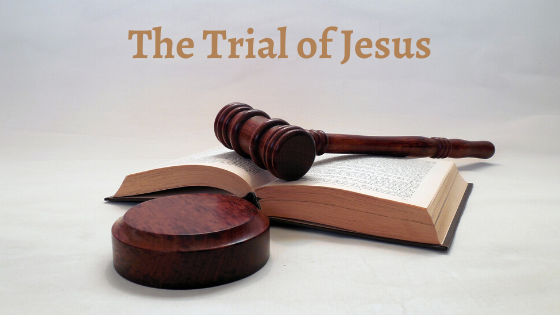The Halakha is the collective body of Jewish religious law, which includes the biblical, the Talmudic, and the Rabbinical law, as well as the Jewish customs and traditions. For first-century Jews, there was one law for religious, civil, and criminal acts. Therefore, when a person committed a religious violation, such as blasphemy (where a person claims to be equal with God), they would be tried through the same courts as if they had stolen or committed murder.
The Halakha provided strict rules for how trials were to proceed in order to maintain a fair system of legal justice and to administer the law honestly. However, this legal system, as all others, operated under the hands of sinful men and thus, failed to always operate in fairness and honesty. In first-century Judea, the religious leaders stoned Stephen in the streets, several times they picked up rocks to stone Jesus, and they were going to stone the woman caught in adultery. These examples violated the Halakha to fairly seek justice.
When a person was properly charged with a crime and taken to trial, there were specific rules for how the trial was to proceed, much like in our own society. At all points, the system was to err on the side of life, favoring mercy over ruthlessness. We would say “innocent until proven guilty.” But in the trial of Jesus, the religious leaders did not follow any of those procedures.
- The Sanhedrin was not allowed to initiate charges against someone. The accusation had to be brought to them by an outside party.
- John 18:12 [At night] Then the detachment of troops and the captain and the officers of the Jews arrested Jesus and bound Him. And they led Him away to Annas first, for he was the father-in-law of Caiaphas who was high priest that year. Now it was Caiaphas who advised the Jews that it was expedient that one man should die for the people.
- John 18:24 Then Annas sent Him bound to Caiaphas the high priest.
- Trials were to be conducted during the daytime so that the public could witness the proceedings. No trial could begin or continue into the night.
- Jesus was arrested at night in the Garden of Gethsemane following the Passover supper.
- The defendant had the right to defense council, which would include access to the evidence and testimony offered against him.
- Jesus was never provided this.
- There had to be at least two credible witnesses. If a witness lied during the trial, the witness would be subjected to the same punishment that would have been due the defendant.
- Matthew 26:59-61 Now the chief priests, the elders and all the council sought false testimony against Jesus to put Him to death, but found none. Even though many false witnesses came forward they found none.But at least two false witnesses came forward and said, “This fellow said, ‘I am able to destroy the temple of God and to build it in three days.’ “
- Mark 14:55-59 Now the chief priest and all the council sought testimony against Jesus to put Him to death, but found none. For many bore false witness against Him, but their testimonies did not agree. Then some rose up and bore false witness against Him, saying, “We heard Him say, ‘I will destroy this temple made with hands and within three days I will build another made without hands.” But not even then did their testimony agree.
- A defendant could not be convicted on hearsay. The witness had to provide evidence to affirm his testimony.
- John 18:22-23 And when He said these things one of the officers who stood by struck Jesus with the palm of his hand saying, “Do you answer the high priest like that?” Jesus answered him, “If I have spoken evil, bear witness of the evil; but if well, why do you strike Me?”
- Luke 22:65 And many other things they blasphemously spoke against Him.
- In a capital case, the witness had to initiate the execution (this is why in John 8:7 Jesus asked who would “throw the first stone”).
- John 18:31-32 Then Pilate said to them, “You take Him and judge Him according to your law.” Therefore, the Jews said to him, “It is not lawful for us to put anyone to death,” that the saying of Jesus might be fulfilled which He spoke, signifying by what death He would die.
- The council members were to recuse themselves if they would be biased during the trial.
- Mark 14:53 And they led Jesus away to the high priest; and with him were assembled all the chief priests, the elders, and the scribes.
- The defendant could not be forced to testify against himself (much like our 5th Amendment).
- John 18:19-21 The high priest then asked Jesus about His disciples and His doctrine. Jesus answered him, “I spoke openly to the world. I always taught in synagogues and in the temple, where the Jews always meet, and in secret I have said nothing. Why do you ask Me? Ask those who have heard Me what I said to them. Indeed, they know what I said.”
- Matthew 26:62-68 And the high priest arose (Caiaphas) and said to Him, “Do you answer nothing? What is it these men testify against You?” But Jesus kept silent. And the high priest answered and said to Him, “I put you under oath by the living God: Tell us if you are the Christ, the Son of God!”
- If the accused were found guilty, there would be a two-day waiting period before sentencing. Then the council members who voted guilty would be polled to see if they had changed their mind. Voting for the verdict always proceeded from the youngest council member to the oldest in order to avoid pressure and influence from the senior council members.
- Matthew 26:64-68 Jesus said to him, “It is as you said. Nevertheless, I say to you, hereafter you will see the Son of Man sitting at the right hand of the Power, and coming on the clouds of heaven.” Then the high priest tore his clothes, saying, “He has spoken blasphemy! What further need do we have of witnesses? Look, now you have heard His blasphemy! What do you think?”They answered and said, “He is deserving of death.” Then they spat in His face and beat Him; and others struck Him with the palm of their hands, saying, “Prophesy to us, Christ! Who is the one who struck You?”
- Mark 14:65 Then some began to spit on Him, and to blindfold Him, and to beat Him, and to say to Him, “Prophesy!” and the officers struck Him with the palms of their hands.
- There was to be a three-day waiting period after the sentencing before the punishment would be carried out. This allowed time for any additional evidence or testimony to be brought forward on the defendant’s behalf. The council members were to fast and pray on the first day of the waiting period.
- John 18:28-30 Then they led Jesus from the house of Caiaphas to the governor’s headquarters. It was early morning. They themselves did not enter the governor’s headquarters, so that they would not be defiled, but could eat the Passover. So Pilate went outside to them and said, “What accusation do you bring against this man?” They answered him, “If this man were not doing evil, we would not have delivered him over to you.”
- On the day of execution, an officer of the court would ask if anyone has any other evidence to prove the innocence of the accused. If anyone comes forward the council reconvenes to hear the new evidence. If not, the convicted would be given drink to dull his senses to lessen his pain. The execution would be carried out and the convicted’s property would be collected and given to his heirs.
- Matthew 27:26-35 Then Pilate released Barabbas to them; and when he had scourged Jesus, he delivered Him to be crucified. Then the soldiers of the governor took Jesus into the Praetorium and gathered the whole garrison around Him. And they stripped Him and put a scarlet robe on Him. When they had twisted a crown of thorns, they put it on His head, and a reed in His right hand. And they bowed the knee before Him and mocked Him, saying, “Hail, King of the Jews!” Then they spat on Him, and took the reed and struck Him on the head. And when they had mocked Him, they took the robe off Him, put His own clothes on Him, and led Him away to be crucified… And when they had come to a place called Golgotha, that is to say, Place of a Skull, they gave Him sour wine mingled with gall to drink. But when He had tasted it, He would not drink. Then they crucified Him, and divided His garments, casting lots, that it might be fulfilled which was spoken by the prophet: “They divided My garments among them, and for My clothing they cast lots.”
The Jewish council violated their own laws in their rush to convict Jesus. Jesus was arrested and tried at night at the house of the high priest, not in the Temple during the daytime. The trial was not open to the public. The charges were brought forward by the council not by a third party. And the charges were never read aloud because they didn’t even know what to charge him with at first. Jesus was not granted any defense, on the contrary, was asked to incriminate himself. No credible witnesses were brought forward. The only evidence presented was hearsay from perjured testimony stirred up by the council itself. These witnesses should have been subject to the same punishment that awaited Jesus.
The vote for conviction was not taken individually from the youngest member to the oldest but was declared by the high priest. There was no two-day waiting period until sentencing, nor a three day waiting period before execution. There was no fasting and praying by the council to consider the weight of the decision to execute someone. Mercy was not valued.
When Jesus was arrested there was never even a pretense of justice. The trial was a ruse for them to execute Jesus. The verdict and death sentence were not based on careful consideration of full impartial evidence and testimony. All legal decorum had been tossed aside as they spat on and slapped Jesus.
The charge they finally landed on for conviction was that of blasphemy. Jesus did indeed claim to be God, which would be blasphemous if the claim were not true. But they didn’t stop to consider that maybe Jesus’ statement were true.
According to Leviticus 24:16, “Whoever blasphemes the name of the Lord shall surely be put to death. All the congregation shall stone him.” The punishment for blasphemy is stoning. Why was Jesus crucified then? Because in God’s Sovereignty, the Roman empire was ruling over Judea and the Jews were unable to carry out an execution. This was why the high priest needed Pontius Pilate, the Roman governor, to agree to execute Jesus. The Roman form of execution for any non-Roman citizen was crucifixion, thus fulfilling the Scripture that his bones would not be broken (Psalm 34:20 and Numbers 9:12) and that He would be pierced for our transgressions (Zechariah 12:10 and Isaiah 53:5).
Of course the trial before Pilate was not a real trial either. There were no witnesses nor evidence provided, only the charges brought forward by the Sanhedrin. In even this though, Pilate seemed more concerned about mercy for a man who appeared innocent than any of the Sanhedrin did. Scripture even tells us that he sought a way to release Jesus. But alas, he feared men more than God. As the angry mob chanted, “Crucify Him!” Pilate released to them Barabbas and sent Jesus to be executed.
But we must remember, none of this happened without God allowing this as part of His divine plan. As Jesus told Pilate, “You would have no authority over me at all unless it had been given you from above.” God was in complete control, and this was the appointed time He chose to redeem His creation by sacrificing Himself in our place.





4 thoughts on “How Was the Trial of Jesus Conducted?”
The irony (maybe not the best formulate) is that had this travesty of justice not taken place then the innocent (Jesus) would not have taken the penalty due the guilty (me). God’s just penalty was paid, God’s wrath assuaged, God’s grace displayed. Wow!!!
Yes! It is a shameful distortion of the justice system but one we get to benefit from. God knew all along what would happen and it was part of His plan for our redemption.
Thank you for going through all of these examples of injustice in such detail. I have heard people talk about this but have never seen such a complete assessment.
Thank you, Bob! I’m glad you liked it.
Comments are closed.